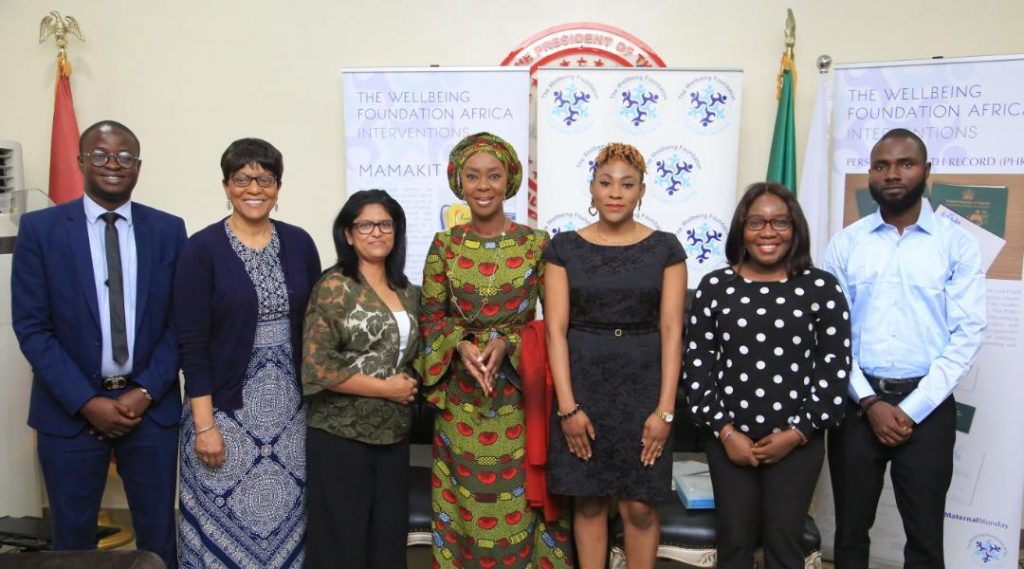FROM January 31st, 2019
In her keynote speech to ‘A Women Leaders’ Forum to Promote Peaceful Elections’ – jointly organised by UN Women, the African Union and the Embassy of Germany – Toyin Saraki called for an end to election violence ahead of the 2019 polls in Nigeria and urged all stakeholders to ensure that women are able to take full part in the democratic process.
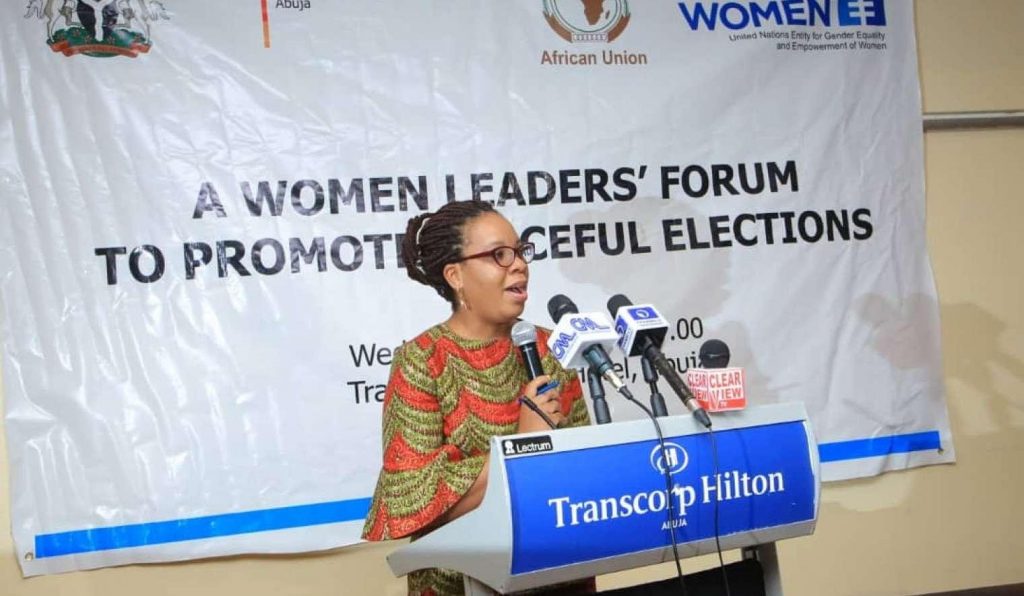
Mrs Saraki, a pioneer member of the African Women’s Leadership Initiative, which was inaugurated at the United Nations in New York in 2016, used her speech to highlight the barriers faced by women and young people in Nigeria, stating:
“As women, I urge us to charge all candidates and stakeholders to uphold the sanctity of democratic culture and the rule of law as sacrosanct, notwithstanding the powers of executive fiat, in order to activate the nation’s progress and productivity as Nigeria decides to elect its next leaders, and always
“51% of Nigeria’s population is female, and the female gender is universally recognised as being the primary and premier gender to nurture and nourish generations, from the helpless newborn in families and communities, into responsible adults that thrive. Similarly, we must encourage the female gender to imbibe and impart the essence of exercising the constitutional civil liberty and human right of democratic suffrage, the right to vote in peace, safety and dignity, to all.”
“As a passionate advocate for the involvement of women and young people in the democratic process, I know that given the chance they can transform Nigeria and create a healthier country for us all. They must be given the opportunity to do so.”
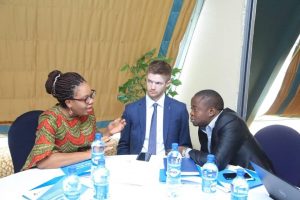
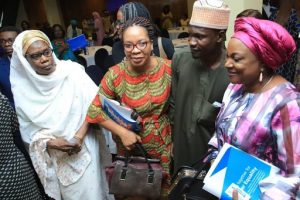
Mrs Saraki, who is Founder-President of the Wellbeing Foundation Africa, Inaugural Global Goodwill Ambassador of the International Confederation of Midwives and Special Adviser to the Independent Advisory Group of the World Health Organization office for Africa, also referenced key indices which she believes are “holding Nigerians back”:
“I know that Nigerians want to build a healthier and safer country. We have the talent and passion to do so, but many of my fellow citizens are held back by the realities of troubling development indices and a direction of travel which is a serious cause of concern.”
“The essential foundations of wellbeing are too often absent. Water, sanitation and hygiene standards are in a state of national emergency, whilst on our current path Nigeria will have overtaken India as the world capital for infant deaths by 2021. Meanwhile, our electricity supply is the second worst in the world – only Yemen has worse access. We must improve these conditions to build a bright future for the next generation.”
The forum was also addressed by the Deputy Head of Mission for Germany in Nigeria, Ms Regine Hess and UN Women Country Representative, Ms. Comfort Lamptey among others including representatives from the security sector and civil society. Mrs Saraki was represented by Mrs Amy Oyekunle, CEO of the Wellbeing Foundation Africa.
FROM January 24th, 2019
Toyin Saraki, Founder-President of the Wellbeing Foundation Africa, made a series of high-level interventions at the annual World Economic Forum in Davos, Switzerland, this week. Mrs Saraki urged the 65 world leaders and 3,000 participants to abandon ‘business as usual’ in recognition of the $33 billion gap in funding for reproductive, maternal, newborn, child and adolescent health, and called for enhanced collaboration between sectors to bring sustainable results to the grassroots level, as participants at Davos met to discuss the theme ‘Globalization 4.0: Shaping a Global Architecture in the Age of the Fourth Industrial Revolution.’
At a World Economic Forum Session focused on sustainable models for development hosted by Merck for Mothers, Devex and the Global Financing Facility, with speakers from Philips Healthcare and Credit Suisse among others, Mrs Saraki commented:
“Where there are gaps in provision, unmet by the public sector, we need to consider new strategies for foreign direct investment and domestic resource mobilisation.”
“At the Wellbeing Foundation Africa we are proud to have had hugely successful partnerships with the private sector, achieving sustainable and scalable impact at the grassroots level.”
“For those who wish to achieve that impact it is crucial to find the right implementing partners – who not only understand the communities you wish to work with and for, but indeed partners who come from those communities.”
“My message to Davos is that we cannot accept a ‘business as usual approach’ and I welcome the intervention by Bill Gates this week. The Bill and Melinda Gates Foundation has shown how
much can be achieved by smart investment – indeed, as pointed out by Bill, investing in global health organizations aimed at increasing access to vaccines creates a 20-to-1 return.”
Commending Dr. Mwele Malecela, Director of Neglected Tropical Diseases at the WHO, for her leadership on NTDs and the associated key issues, such as improved water, sanitation and hygiene (WASH) standards, Mrs Saraki also conducted an exploratory meeting with Ellen Agler, CEO of The END Fund. Nigeria has the largest NTD burden in Africa, with more than 128 million people requiring treatment for at least one NTD in 2016 and all five of the most common NTDs being present in the country: intestinal worms, river blindness, trachoma, lymphatic filariasis, and schistosomiasis.

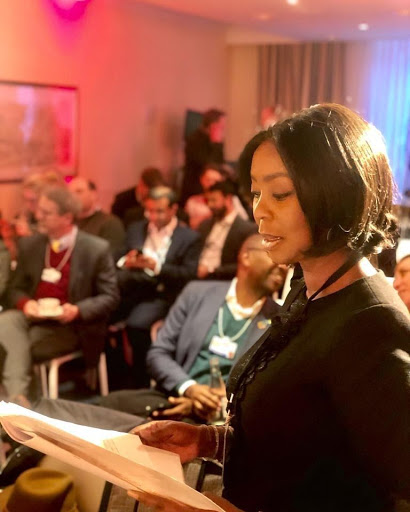
FROM January 21st, 2019
Toyin Saraki, Founder-President of the Wellbeing Foundation Africa and Global Goodwill Ambassador for the International Confederation of Midwives (ICM), has warned against “business as usual” as global leaders meet in Davos, Switzerland, for this year’s World Economic Forum gathering.
Mrs Saraki will address key meetings throughout the annual meeting, including “One Billion Improved Lives: Progress and Lessons Learned from the Movement to End Neglected Tropical Diseases” organised by the END Fund alongside Dr. Mwele Malecela, Director, Neglected Tropical Diseases at the World Health Organization.
As Special Adviser to the Independent Advisory Group to the WHO Africa Office, Mrs Saraki is expected to intervene to call for Neglected Tropical Diseases, or NTDS, to be prioritised in Nigeria, which has the largest NTD burden in Africa. According to the END Fund, all five of the most common NTDs are present in the country: intestinal worms, river blindness, trachoma, lymphatic filariasis, and schistosomiasis, with more than 128 million people requiring treatment for at least one NTD in 2016.
In advance of the World Economic Forum Mrs Saraki commented:
“My message going into Davos is that we can neither accept nor afford a ‘business as usual’ approach.”
“I will call on world leaders to prioritise the fight against NTDs and the key issues surrounding them, such as improved water, sanitation and hygiene (WASH) standards. In Nigeria, we cannot hope to overcome NTDs while our direction of travel on these issues and indicators is backwards.”
“I welcome the fact that six of the seven co-chairs of the World Economic Forum this year are young people – our discussions must be forward-looking and bold.”
“I will also continue to support the WHO with its agenda to forge ahead with Universal Health Coverage and encourage the international community and national Governments to effectively and urgently support it.”
“As Global Goodwill Ambassador for the International Confederation of Midwives, I will be highlighting the dangers faced by healthworkers on the frontline as they provide care to the most vulnerable people in the world. Their security must be at the forefront of our minds and in 2019, for the good of women, children and all communities.”
“All stakeholders should leave Davos with the conviction and determination that business as usual must transform to business unusual, to activate sustainable progress and deliver health and wellbeing for all. We must strive to ensure that the innovation and ideas we exchange here annually are activated swiftly to deliver progress and impact to at-risk frontline communities, breaking the barriers of socio-economic inequity.”
FROM January 17th, 2019
Wellbeing Foundation Africa Founder-President Toyin Saraki welcomed the Foundation’s global partners Johnson & Johnson to her residence in Abuja on Wednesday to discuss ongoing cooperation and the future of healthcare interventions in Nigeria.
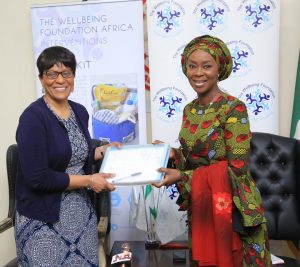 Mrs Saraki, who is also Special Adviser to the Independent Advisory Group of the WHO Africa office, commented:
Mrs Saraki, who is also Special Adviser to the Independent Advisory Group of the WHO Africa office, commented:
Wellbeing Foundation Africa Founder-President Toyin Saraki welcomed the Foundation’s global partners Johnson & Johnson to her residence in Abuja on Wednesday to discuss ongoing cooperation and the future of healthcare interventions in Nigeria.
Mrs Saraki, who is also Special Adviser to the Independent Advisory Group of the WHO Africa office, commented:
“I am delighted three years into our ongoing social responsibility partnership to improve Emergency Obstetric and Newborn Care across Kwara State, in conjunction with the Liverpool School of Tropical Medicine, that Johnson & Johnson is making landmark investments in commencing corporate commercial engagement in Nigeria.”
“This demonstration of direct investment into personal care product manufacturing in Nigeria will create jobs and improve socio-economic outcomes for Nigerians.”
“The Wellbeing Foundation is proud of its work with the Global Community Impact team at Johnson & Johnson. Our healthcare worker training programme in Kwara has resulted in a 15% reduction in maternal case fatality rate and a 38% reduction in the still birth rate in health care facilities where the project is implemented.”
“Our training is so successful because it takes place in facilities and equips doctors, nurses and midwives, as a collective team, with the skills needed to overcome these obstetric emergencies. The innovation that our approach unleashes is inspirational – my favourite example is the use of a condom-catheter balloon, filled with saline, to control postpartum haemorrhage, the excessive bleeding after birth which is the leading cause of maternal mortality and affects up to 5% of women.”
